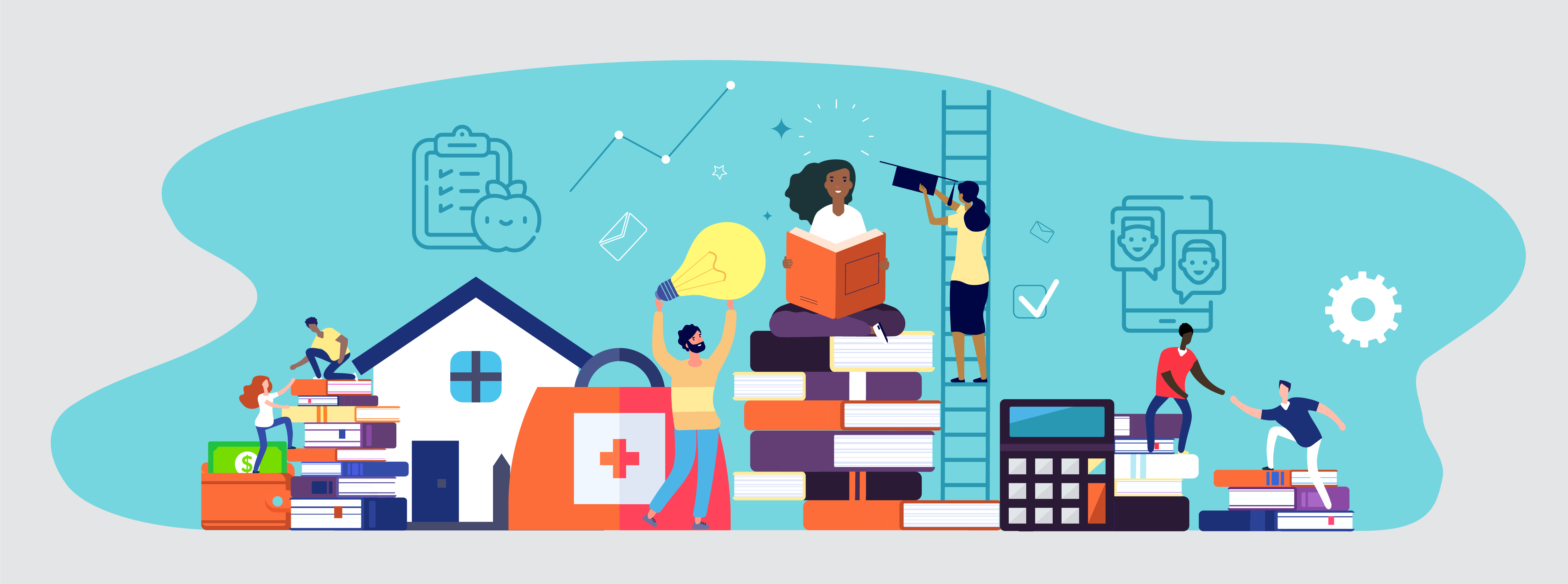Dear Reader,
For more than 10 years; The Social Innovations Journal has connected and inspired local change agents through the sharing of knowledge, best practices, and research to reduce poverty. Concrete impact and change require more than education and engagement -- it requires strategic action. This edition of the Social Innovations Journal highlights the strategies of key actors within the Philadelphia ecosystem who are collectively moving the needle on poverty.
To provide context, nearly one in four Philadelphians is living at or below the federal poverty line. Philadelphia's poverty rate is the highest among the 10 largest cities in the United States; and is more than double the national average. There are numerous city-run programs as well as 384 nonprofit organizations with the word "poverty" included in their missions that provide assistance to the residents of Philadelphia. Philadelphia City Council released its Poverty Action Plan focused on three strategies: Social Safety Net, Housing, and Jobs and Education.
Legislators, government, not-for-profits, academic institutions, and to some extent private companies are all tackling poverty. Despite these efforts, agreed upon strategies, and an ongoing call to action, limited change has occurred for the simple reason that poverty is complex. What is needed is an agreed upon shared measurements and evaluation system that can assess the collective efforts and impact for all organizations. A shared measurement and a system-wide evaluation system would accomplish three things:
- Measure the collective impact of all organizations working on poverty in the region, with the understanding that poverty can be reduced if the collective is aligned on what is important to assess.
- Transparency in reporting that will provide organizations, and the collective, the opportunity to adjust their strategies/initiatives if the agreed upon measurements are not being achieved.
- Data gathering from the collective that can be used to influence local, state, and national anti-poverty policies.
Generally, local change is either driven by local change agents defined as individuals or institutions that are in a position to influence system behavior at their level OR policy change agents defined as governmental policymakers, regulators, or legislators who are advocating, organizing, and supporting change in a sustainable manner. Rather than local change agents working independently and often in isolation of each other, sustainable change will occur when change agents align their efforts towards collective impact through shared measurement goals.
At the Social Innovations Journal, we believe that if we create platforms for the fostering of dialogue, learning, new knowledge, and the creation of communities of practice then we will inspire local change and policy agents to take action locally through adopting and implementing policy and strategy recommendations.
We hope this edition inspires greater collaboration that results in collective action and impact to holistically address poverty in Greater Philadelphia as well as other ecosystems to ultimately help move individuals up the social mobility ladder to a living wage to reduce economic disparities.
Sincerely,
Nicholas Torres
Edition Curator
Articles
Will Philadelphia's Poverty Action Plan succeed in raising 100,000 residents out of poverty by 2024?
Bryan Wilkinson
Advancing the Economic Security of Women Through Equitable Community Engagement Practices
Diane Cornman-Levy, Cynthia Estremera Gauthier, Elizabeth Guman, Tashell Stevenson
The Greater Philadelphia 2020 College Rankings
Mike Clark
Helping Adult Learners Achieve Higher Education
David Castro, Cynda Clyde, Fernando Castro
Reimagining the Role of Post Secondary Education and Its Impact on Poverty
Carniesha, Dr. Owens
Advancing Learning Pathways and Economic Opportunity in the Era of COVID-19
Malik Brown
Financial Literacy Technologies Help Reduce Financial Barriers for First-Generation College Students
Fred Amrein
Virtu.us: Investing in Education and Human Capital in an Age of Government Decline
Eric Schnurer
Importance of a Place-based and Community-Moderated System of Research Oversight to Maximize Benefits for Social Change
Amy Carroll-Scott
The Importance of Small Business and Entrepreneurship as Strategies to Alleviate Poverty
Charlotte Merrick, Sylvie Gallier Howard
Investing Together to Build from Within
Jill Fink, Peter Gonzales
The Green Conservation Corp
Kimberlee Douglas, Drew Harris
Shifting Focus from Crisis to Goals
David Griffith
Cuantix: Innovating from Zones in Crisis
Adriana Mata
Cuantix: Innovando desde lugares en crisis
Adriana Mata
Queremos Graduarnos -- Growing with Quality
Ana Luisa Silva
Creciendo con Calidad: Queremos Graduarnos
Ana Luisa Silva
The Jenaro Aguirre Elorriaga Primary School and the Madre Maria Luisa Casar Foundation
Andreina Aguiar
Fundación Madre María Luisa Casar y Escuela Jenaro Aguirre Eliorraga
Andreina Aguiar
Issue 61 | Social Mobility: Inspiring and Building the Capacity of Local Change Agents to Impact Poverty
Typography
- Font Size
- Default
- Reading Mode



